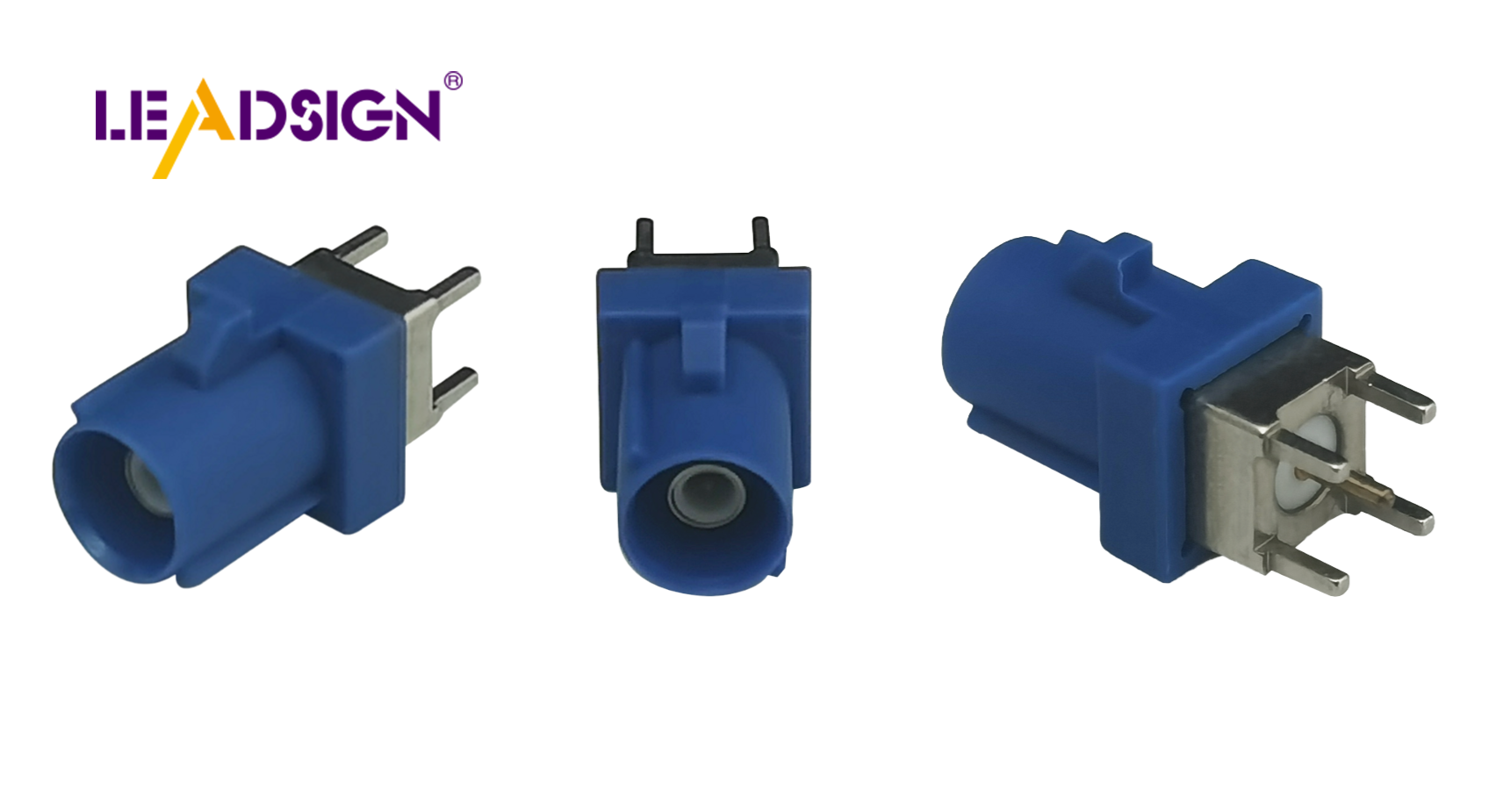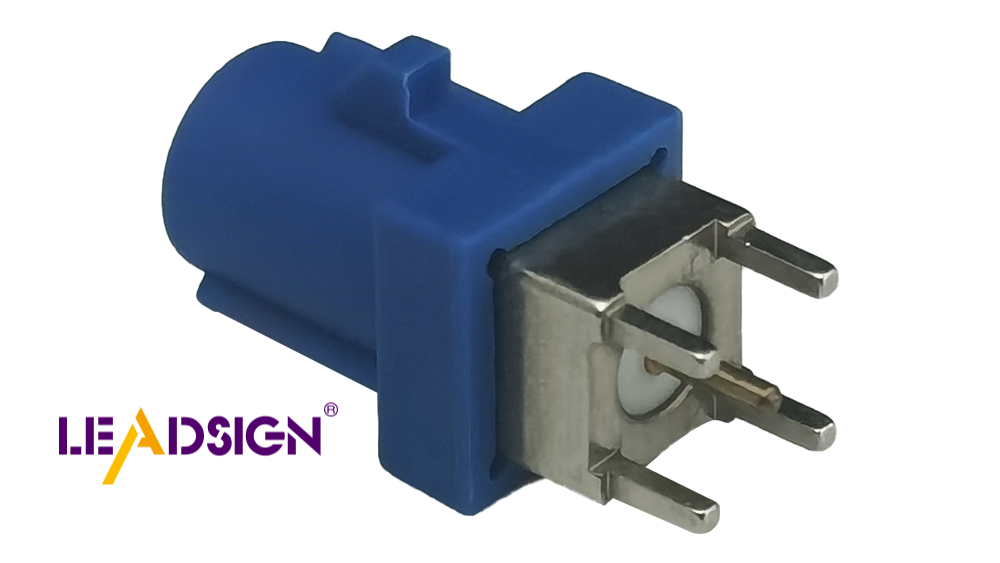Understanding Automotive Electrical Connectors Types for Your Vehicle

Automotive electrical connectors types are crucial components for your car's electrical system. They play a vital role in connecting various electronic parts and facilitating their collaboration. In the event of connector failure, your car may experience frequent electrical issues. Research indicates that 40% of car problems stem from faulty connectors. With the evolving automotive landscape, the demand for more robust connectors is on the rise. It is anticipated that future cars could incorporate as many as 1,000 connectors per vehicle. Understanding the different automotive electrical connectors types is essential for ensuring the optimal performance of your car.
Automotive Electrical Connectors Types

Knowing about different automotive electrical connectors types helps keep your car's electrical system working well. Let's look at some common connector types and what makes them special.
Blade Connectors
Blade connectors are popular in cars because they are simple and dependable.
Features and Applications
Design: Blade connectors have a flat metal piece that fits into a matching slot.
Applications: They are used in car parts like lights and audio systems, where easy unplugging is needed.
Advantages and Disadvantages
Advantages:
Simple to plug in or take out.
Securely connects with little effort.
Disadvantages:
Not good for places with lots of shaking.
Can't carry as much current as other connectors.
Pin Connectors
Pin connectors are great for connecting many wires in small spaces.
Features and Applications
Design: These have pins that go into matching holes.
Applications: Perfect for complex car systems, like engine controls and sensors.
Advantages and Disadvantages
Advantages:
Many connections fit in a tiny area.
Connections are strong with low resistance.
Disadvantages:
Hard to line up correctly sometimes.
Cost more than simpler connectors.
Butt Connectors
Butt connectors join wires end-to-end easily.
Features and Applications
Design: Tube shape lets wires enter from both ends, then crimped tight.
Applications: Great for making wires longer or fixing broken ones in cars.
Advantages and Disadvantages
Advantages:
Easy way to extend or fix wires.
Makes a strong connection.
Disadvantages:
Not for high-current uses.
Need special tools to crimp properly.
By learning about these automotive electrical connectors types, you can choose wisely when fixing or improving your car's electrical system. Each type has its own job, helping your car work its best.
Ring and Spade Connectors
Ring and spade connectors are important for car electrical systems. They make sure connections are strong so everything works well.
Features and Applications
Design: Ring connectors have a round end to fit over bolts. Spade connectors have a fork shape to slide under screws. This makes them easy to put on or take off.
Applications: These connectors join wires to battery ends, ground wires, and connect wires to switches. They are used in many car tasks because they work in different ways.
Advantages and Disadvantages
Advantages:
Secure Connection: Ring connectors hold tight, stopping loose connections from shaking or moving.
Ease of Use: Spade connectors are quick to use without soldering, great for fast fixes.
Versatility: Both types fit different wire sizes and screw sizes, making them useful in many jobs.
Disadvantages:
Limited Current Capacity: They can't handle high power because of their design limits.
Potential for Corrosion: Without good covering, they can rust in bad weather. Checking them often helps stop this problem.
Knowing about ring and spade connectors helps you pick the right one for car electrical jobs. Choosing well keeps your car's system working smoothly.
Why Good Electrical Connectors Matter
Picking good automotive electrical connectors types is key for your car. These connectors help your car's systems work well and safely. Let's see why quality is important.
How They Affect Your Car
Being Reliable and Safe
Good connectors make strong links, keeping your car safe. Using top-quality ones lowers the chance of electric problems that can be risky. For example, spade connectors give quick, no-solder links, making them great for new jobs. They keep wires tight, stopping loose wires that might cause trouble.
Lasting Long and Staying Strong
Quality connectors last longer and handle tough conditions better than cheap ones. They fight rust and wear, so your car's systems stay working over time. Ring terminals and butt connectors are important for keeping good connections, offering strength to keep your car running well. By getting strong connectors, you need fewer replacements, saving time and money.
Problems with Bad Connectors
Electric Failures Happen
Bad connectors often cause electric failures. These can mess up your car's parts like lights or sensors not working right. Spade and blade terminals are used a lot in cars because they connect well. But using bad versions can make weak links, leading to many electric issues.
More Money on Fixes
Using bad connectors means more repair costs. You need to fix or change them often when they don't work right. Good ones with water-proof or sealed features stop problems that cost a lot to fix later. Picking the right automotive electrical connectors types keeps your car in shape, cutting down on repairs needed all the time.
Picking the Best Connectors for Your Car
Choosing the right connectors is key to keeping your car safe and working well. You should think about a few things to make sure they fit your car's electrical system.
Things to Think About
Fit with Car Systems
Make sure connectors fit your car's systems. Each car might need different connectors, so check what it needs. Wrong connectors can mess up important parts like brakes or airbags. Always check if they match your car's power needs.
Weather Conditions
Think about where you'll use the connectors. Cars face heat, cold, and wetness. Good connectors handle these tough spots. For example, top-quality ones last in bad weather and keep connections strong. Pick ones that don't rust easily to handle tough weather to keep them working well.
Tips for Getting Good Ones
Check Maker's Reputation
Before buying, learn about who makes them. Good makers give you high-quality stuff that works well. Read reviews or ask experts for advice. A trusted maker gives you safe and reliable connectors.
Know Material Details
Know what materials are used in the connectors. The best ones use gold or silver coatings for good power flow and no rusting. These help them work in all conditions. Also, look at how easy they are to plug in and out.
By picking the right automotive electrical connectors types, your car will run safely and smoothly. Focus on quality and fit to avoid fixing problems often and keep your car running great.
Choosing the right car connectors is very important. Pick good ones that fit well to keep connections strong. Good connectors last long and handle tough weather, saving money on repairs. Think about power needs, water resistance, and if they fit your cables when choosing. By doing this, your car's electrical system stays strong and works well. Remember, buying the right connectors now stops problems later. Keep your car running smoothly by making smart choices about its parts.
See Also
Exploring HSD Connectors in Automotive Technology
Significance of Fakra Connectors in Contemporary Cars
Navigating Ford's Fakra Connector System

